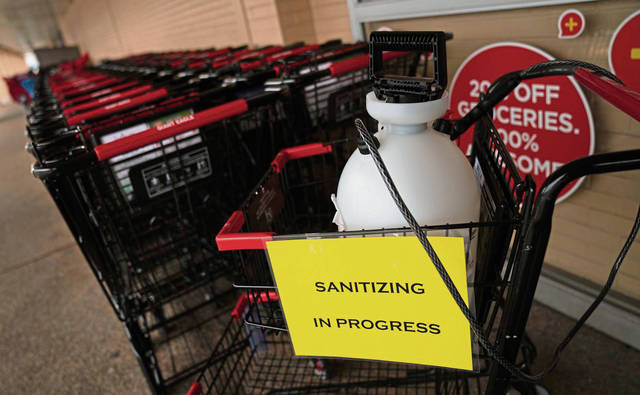Relax, your food isn’t trying to kill you — probably.
While grocery stores have increased sanitation measures amid the coronavirus pandemic, some consumers are worried they have more cleaning to do when they get their goods home.
Pittsburgh-based infectious disease and critical care physician Dr. Amesh Adalja doesn’t think shoppers need to worry.
“I don’t believe that there’s any evidence that people need to do anything special with their groceries other than what they would’ve done in any other situation,” he said. “Though many grocery stores have banned the use of reusable shopping bags, I do not believe that there is any strong evidence that this is necessary.”
The U.S. Food and Drug Administration said there is little evidence that food or its packaging is involved in transmitting the coronavirus.
The virus can live on surfaces for a few hours to several days, according to research published March 17 in The New England Journal of Medicine. And, while a person could become infected by touching their face after touching a contaminated surface, the FDA said that’s not the main way the virus spreads.
Researchers found the coronavirus was detectable on plastic and stainless steel for up to 72 hours. On cardboard, there was no virus detectable after 24 hours, and contamination of copper lasted a few hours, according to the study.
The risk exists of becoming infected by handling groceries, but it is minimal, said Joseph G. Allen, assistant professor of exposure and assessment science and director of the Health Buildings program at Harvard University’s T.H. Chan School of Public Health. He encouraged grocery shoppers in a Washington Post opinion piece to wash their hands when they get home, put groceries away and do the hand-washing routine again. It’s unclear how long the virus may be infectious to people from a surface, USA Today reported.
A Michigan family medicine doctor suggested a more stringent approach — disinfecting packaging and putting food items into storage containers, according to a Michigan Live article.
Extra precautions like wiping down items couldn’t hurt, according to Consumer Reports.
Aldi and Giant Eagle have announced additional sensitization measures. Some Giant Eagle workers spend their entire shift going through a checklist, focusing on sanitizing areas such as cash registers, freezer handles and bathrooms. Reusable shopping bags have been banned there.
Anyone shopping at a grocery store is asked to try to stay 6 feet away from other customers and practice social distancing while avoiding touching their face, Adalja said.








